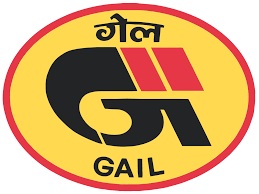GAIL (India) Limited marked a major milestone in India’s energy infrastructure with the successful berthing and discharge of its first LNG vessel at the Dabhol LNG Terminal following the completion of the landmark Breakwater Project.
‘GAIL Bhuwan’ Makes Historic First Call
On June 2, 2025, Sandeep Kumar Gupta, Chairman and Managing Director, and Sanjay Kumar, Director (Marketing), GAIL, received the LNG vessel ‘GAIL Bhuwan’. The event marked the start of seamless, all-weather operations at the terminal, a transformative development for India’s gas import capacity.
Breakwater Project Transforms Dabhol into All-Weather Port
With the commissioning of the island breakwater structure and receipt of all necessary statutory approvals, the Dabhol LNG Terminal is now classified as an all-weather port. This is a crucial upgrade that allows uninterrupted operations throughout the year, including during the challenging Southwest monsoon, which has historically disrupted marine logistics along India’s west coast.
Unlike conventional land-connected breakwaters, the Dabhol breakwater is an island-type structure, reflecting a significant feat of advanced marine engineering. Multiple stakeholders realized this complex infrastructure through innovative solutions and deep collaboration, overcoming numerous technical hurdles.
Vital Link in India’s Natural Gas Network
Strategically located on the Maharashtra coastline, the Dabhol LNG Terminal has a regasification capacity of 5.0 million metric tonnes per annum (MMTPA). It plays a key role in India’s energy distribution system, feeding into major pipelines such as the Dabhol-Bangalore and Dabhol-Panvel corridors. The new breakwater is set to significantly improve vessel accessibility, enhance operational efficiency, and increase capacity utilization, thereby strengthening GAIL’s LNG handling capabilities.
Capacity Expansion to 6.3 MMTPA Underway
As part of its forward-looking strategy, GAIL is now preparing to expand the terminal’s capacity from 5.0 to 6.3 MMTPA in the first phase over the next three years. Once expanded, the terminal will be capable of handling up to 100 LNG cargoes annually, reinforcing its role as a critical node in India’s energy supply chain.
Driving Energy Security with Resilient Infrastructure
The achievement comes at a pivotal time, as India accelerates efforts to ensure energy access, reliability, and security. As reported by msn.com, by transforming Dabhol into a monsoon-resilient LNG hub, GAIL is not only addressing seasonal operational challenges but also laying the groundwork for a more robust and flexible energy future.

































